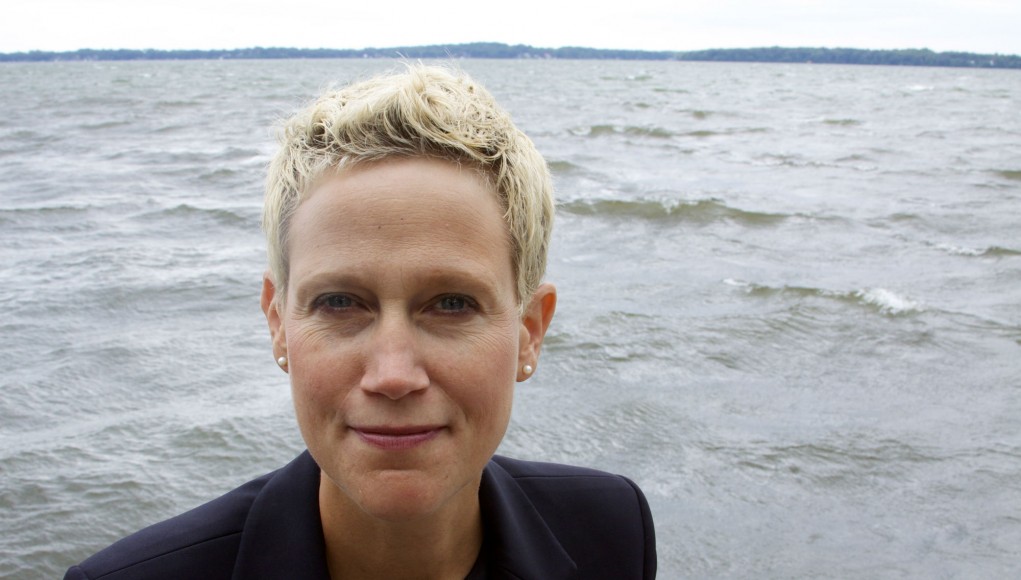Futurist, economist and author Rebecca Ryan is one of the most influential thinkers in the United States today. Her books include ReGENERATION: A Manifesto for America’s Future Leaders (2013) and Live First, Work Second: Getting Inside the Head of the Next Generation (2007). She is founder and owner of Next Generation Consulting.
Name your top 5 MCs. Lauryn Hill, Queen Latifah, Salt ‘n’ Pepa (that’s two), Jay-Z (Damn, I sound old.)
What motivates you more, doubters or supporters? This is like a basketball question to me. (You know I played pro ball with enormous, hairy women in Budapest, right?)
Your supporters are your team. I’ve got my diva squad (Lisa Loniello and Stephanie Ricketts) whom I work with every day. And then I’ve got a whole group of Super Janes (amazing women) and Dudes (self explanatory) around the country who Have. My. Back. They are my team.
“Good” doubters are like good opponents. If they’re thoughtful and smart, they make you better. But a lot of doubters are just lazy armchair doubters. They just re-post stuff on facebook without doing any mental gymnastics. They’re “bad” doubters, sheep who just do what others are doing. I don’t respect them. It’s easy to be against something; it’s harder to invent a solution or find a way to make something better.
What does it mean to be white in Madison? Do fish know they’re in water? Being white in Madison is full of invisible privilege…it becomes visible the more you pay attention, and the more you open up to hearing the stories of those who don’t belong to the majority culture.
What three leaders in Madison under 50 have impressed you the most? Will Green, Kaleem Caire, Sara Alvarado
What’s the biggest stumbling block in Madison to turning the corner on our racial disparities? Ego. Some (white) people can’t allow themselves to feel vulnerable. But forty years of poor outcomes for Black people requires us to question everything and set aside the need to be right or have answers. We need a “beginners mind”. Ask more questions and shut up, white people.
What are your top three priorities at this point in your life? To leave the world better for future generations.
To deepen my Zen practice.
To never let my fear be stronger than my hope.
What has been a bigger barrier in your professional life: being a woman or being from the LGBQT community? I love this question, because no one’s had the insight or sensitivity to ask it!
Let’s level-set. No matter what people want to believe, America is historically stacked towards white dudes. They wrote the constitution in 1787 and prevented others from having the right to vote for a LOOOOONG time. Free African American men weren’t allowed to vote until 1870, women didn’t have the right to vote until 1920 and racial minorities until 1965. So let’s be honest: white dudes had a massive head start in stacking the country in their favor.
That said, I think being a woman has been harder than being a lesbian. Dudes don’t seem as threatened by my sexuality, but they do have implicit bias towards other men, and therefore against women.
You could live anywhere in the world. Why do you choose to live in Madison? I’m not sure if I’ve chosen Madison. I’m still in the process. It’s not like, “I chose Madison, and now I’m here. Period.” Every few years, I seriously question why I live here. Madison pisses me off and sometimes wears me out. I’m not sure how long I’ll be here, or if I’ll ever leave. That’s just the truth.
You spoke at Ted X, something not many people get to do. What did you speak about and why? I talked about the “seasons” that America goes through and how we’re in a wintertime period now. Then, I shared four examples of people and organizations that are helping us MAKE the turn from winter to spring. Madison’s Off the Block Salsa is one of them. (PLEASE watch my TED talk on YouTube. If I can get 10,000 views, my talk has a chance of being featured on TED.com. Mad shout out to anyone who helps on this.)
What are the top three best practices for giving a good presentation? I think my response is going to be super dull for most readers, so I’ll cut you a deal and give you three:
- It’s about the AUDIENCE, not you (the speaker). Most speakers fall into the trap at some point in their career of thinking it’s about them, cuz they’re the ones on stage under the lights with the loudest microphone and all eyes on them. The times I have fallen flat on my face on the platform is when I got all egotistical and thought I was The Bomb Dot Com. It’s not about me. Ever. It’s about the audience.
- People love great stories and forget stats. So dig deep and give the audience a great story (esp if it makes you feel vulnerable) and people will remember.
- What’s going to get in your audience’s way of hearing you? For me, a white lesbian woman, there are going to be attitudinal barriers. I have to take these into account. And I like to address them head on.
How do you want to be remembered? I don’t care about being remembered. I care that my godson’s great, great, great grandchildren (kids I’ll never meet) are living on a planet we can be proud of.
What will be the legacy of the Baby Boomer generation on race relations? They started an important conversation that they didn’t complete. It’s up to us (the next gen) to improve the dialogue, implement, and iterate.




























